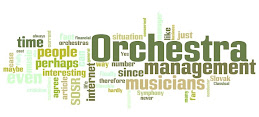Let me clarify this by a very simple example - if e.g. a violin player or a singer, has a lousy hearing, (s)he will play/sing out of tune (not referring to accidental wrong hits due to speed or incidental nervousness). Like a foreigner, learning English, will perhaps pronounce teh phrase "Where were you" as "Vur vur yoo" - not distinguishing a nuance of pronunciation of the words "where" and " were". You must tell him the difference. It's a process (s)he must learn master: maybe the ear is poorly trained and the player has no clue what (s)he is doing wrong. Equally bad, if the player is not interested at all to be bothered by adjusting the intonation. This is a mental state - and believe me, even among professionals I see it often enough. Yes, even musicians are human, and can have a tendency to laziness or sloppiness. The latter can be corrected, but the former is more problematic.
Now, our ears are not only trained to hear pitch, but a lot more as well. Besides having a good intonation, the ear is also trained to be used to style - your own playing style. Ever recorded your own voice, and played it afterwards? Usually, we tend to be shocked by the different sound of it, the different colour, the extent of nasality - while another person hears no difference at all. Our (hearing-)perception of one's own sound (re)production is therefore extremely confusing ourselves. My struggle often is, that musicians often have a wrong perception of style (the earlier mentioned overly use of vibrato), have a different tempo - even if I beat clearly a bit faster or slower, they keep on going in their own tempo (preference); specific rhythmic patterns notoriously 'force' musicians to start speeding - something which they would notice when only listening; when playing, they're sometimes not aware of their sudden tempo switches. Even if I request them to alter this or that, they continue in their previous way (habit). And perhaps, they're convinced their own performance is flawless, because thinking it is according to what their professor told them to do (pride).
Here again, we come to the discussion, why we allow people to use wrong style: the often heard excuse is "oh let them do this their way, they're already used to it" while, fortunately, intonation is OK to work on? Consequently, if never criticising musicians on their playing, they will become "professionally autistic", not being able any more to maintain a (self)critical hearing, to be more open and appreciative of other ideas, not questioning their own output. To put it differently; we are expected to be critical only to one single aspect, but for the rest we should readily let them err?
Unfortunately, I do see a lot of passivity and this disinterest as if a chronic "professional autism" reigns. 40 Years of communist rule here have left a sad mark, in a field, which one would expect to be detached from politics. Nevertheless it has created a mentality issue. The old school doesn't produce good methods to keep musicians self-critical and to develop an attitude to constantly improve oneself. The good thing is, that there are still some outstanding musicians, with good ideas and open mind - sadly enough they are only an exception. But together we have a task to move forward into the right direction. In time, the rest will gradually have to follow suit or else leave the stage. It is all a balancing act, but balancing which is needed - not because to please your music colleagues, but to make us survive.
MS
